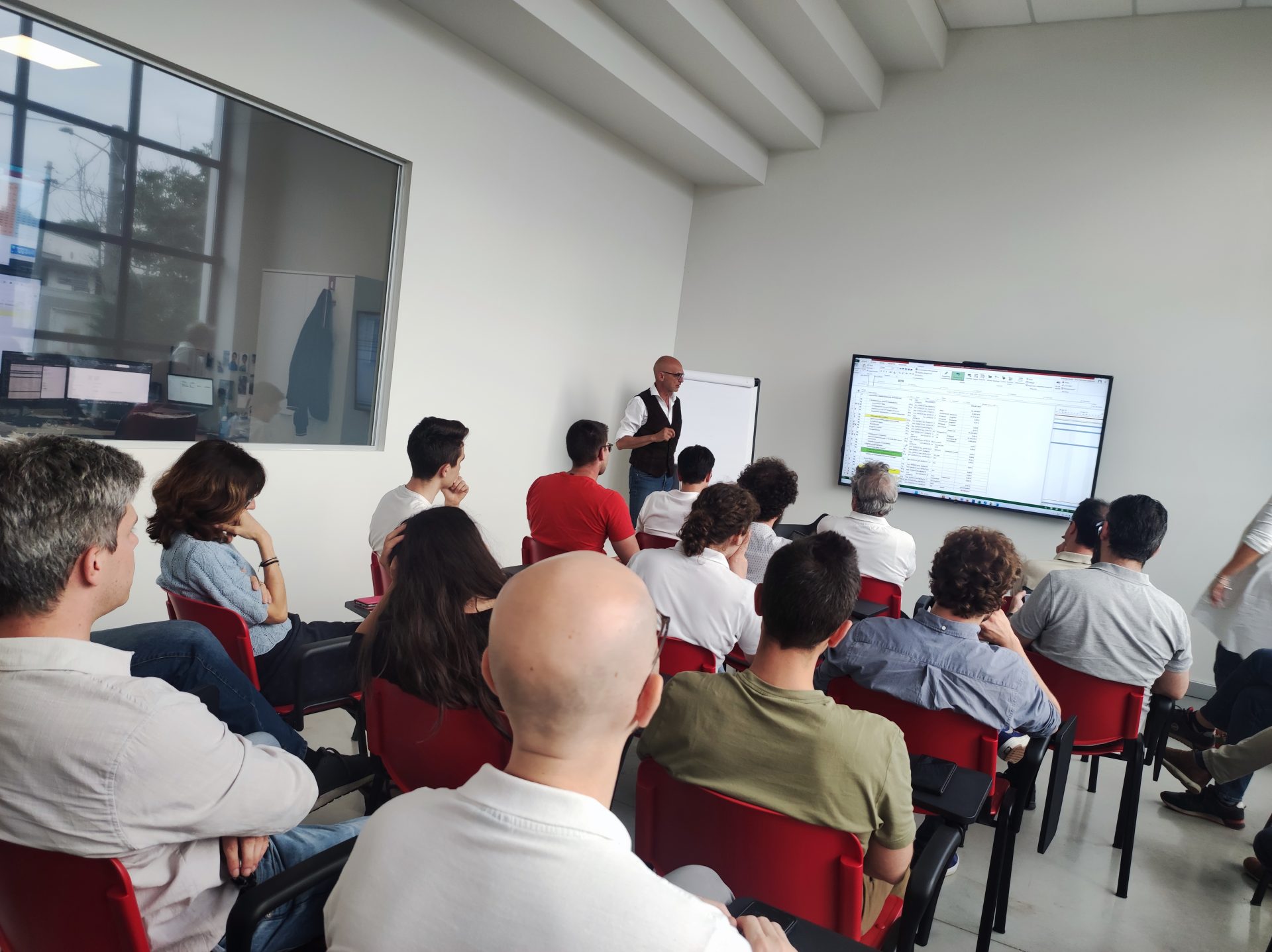Sustainability is participation. First and foremost, of the people who make the company come alive every day. It all started with us, with an internal company meeting and a final toast, the official launch of the ESG Plan.
“Sustainability is the best strategy to make a company last. And a company to last must be able to generate profit. And what allows a company like Entsorga to be more productive, and therefore truly sustainable over time? Its people. So being sustainable for us means first and foremost investing in our people and our key stakeholders,’ commented our CEO, G.F. Galanzino, at the opening.
The meeting was an opportunity to take stock of the past few years, but above all, to look towards the future by analyzing together the main ESG objectives we have set, and which will be featured in our first Sustainability Report.
If sustainability, in fact, belongs to our DNA and our actions have always been oriented towards transparency, respect, and social and environmental responsibility, from this year we have decided to make our path more structured and measurable, setting milestones, we commit ourselves to achieve to make our company increasingly strong and sustainable
Enviromental: from reducing direct impact to recovery projects.
Although we have grown both economically and in terms of number of employees, the first goal we have set ourselves in the environmental field is to continue to contain our direct impact: new targets for reducing and offsetting CO2 emissions have therefore been defined, we will promote an energy community and a photovoltaic system has been installed in the new offices; the purchase of a fleet of e-bikes and electric cars for short journeys is also planned, together with the installation of accumulation systems for the bikes and charging stations for the cars. Under study is also an economic evaluation to realise an anaerobic mini-digester to dispose of company canteen waste and transform it into electricity for self-consumption as well as a circular recovery project for packaging and agro-food waste from the food industry and large-scale distribution to produce biogas-biomethane or animal feed.
Social: the ISO 45001 system, training, welfare and community support.
In the social sphere, we approved a policy on remuneration system and human rights and we integrated the ISO 9001 and 14001 certifications into a certified health and safety management system (ISO 45001), which requires the company to carry out a specific risk assessment that considers not only its internal reality, but also the external context. All of this has resulted in the development of a sustainability policy that will be integrated into the ISO 9001-14001 and 45001 manual and made public both internally and externally within the company.
We have also strengthened the organisational structure by bringing in a production manager with safety responsibility as well as a head of function to coordinate the work of the PMs.
Training has also been further increased for everyone: language courses, in-depth training on sustainability issues and coaching on leadership skills dedicated to the front lines.
In terms of corporate welfare, staff were provided with a supplementary health insurance policy and a Welfare Card for meal vouchers and petrol. In addition, contracts have already been signed with several local sports associations to allow everyone to practice sports at favourable conditions, as well as setting up a gym in the new offices.
To better evaluate the supply chain, it was also decided to adopt formalised ESG screening criteria for suppliers.
Finally, clear commitments have been made to support sports and cultural initiatives and increase partnerships with associations, organizations, and companies to promote good practices for offsetting carbon footprint and make the Tortona area increasingly carbon neutral.
Governance: from Model 231 to the Sustainability Committee.
In terms of governance, a Management Model in compliance with Decree 231 will be adopted by 2023, as well as the Code of Ethics, and an anonymous channel (Supervisory Board) will be activated for the reporting of any illegal behaviour.
A Head of Emissions Management, CSR, Social Issues and Governance has also been appointed. Additionally, a Sustainability Committee has been formed, consisting of both internal and external members, which will monitor the progress made in ESG matters and oversee the development of the report.
Finally, some of Development’s projects were also presented, in the full spirit of the Circular Economy. In fact, the core business will continue to be the feasibility study, design and construction (EPC, acronym for Engineering, Procurement and Construction) of plants for the transformation of waste or by-products into renewable fuels. According to a well-established business model, Entsorga will act as a developer: on the one hand, it will be responsible for obtaining Environmental Authorisations to build plants and, on the other hand, for finding investors interested in acquiring the authorisation and building the plants, which will then be entrusted to Entsorga.

